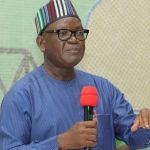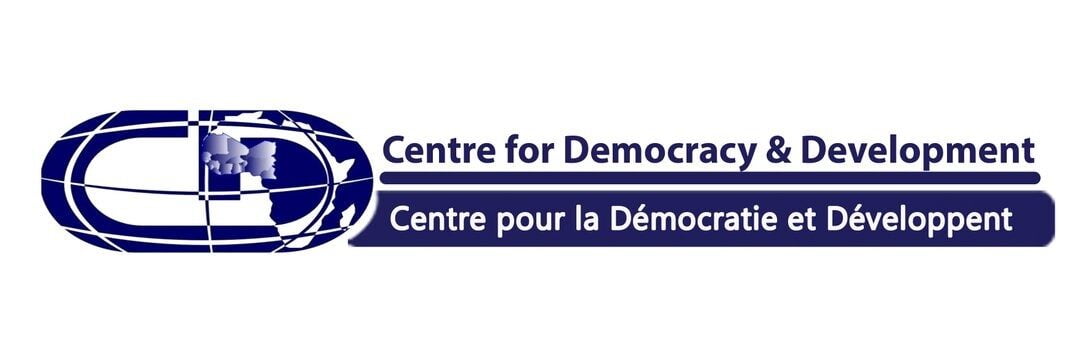The United Nations’ Resident and Humanitarian Coordinator for Nigeria, Matthias Schmale, has called for a stronger partnership with the media in the implementation of Sustainable Development Goals (SDGs) in Nigeria.
The UN official made this remark while addressing journalists at two-day training on SDGs in Abuja on Friday.
“Media play a critical role in achieving Agenda 2030, which includes ensuring citizens are well-informed to enable them to form opinions based on facts. Factual and evidence-based reporting is critical at this period of fake news,” the official said.
The project, “Training of journalists on Sustainable Development Goals (SDGs) and developing a Nigeria Network of Sustainable Development Journalists”, was organised by the United Nations Information Centre (UNIC) Lagos, in collaboration with Media Awareness and Information For All Network (MAIN) to deepen journalists’ knowledge of sustainable development, and to engender high-quality journalistic practice that holds the government accountable to Agenda 2030.
“It was also aimed to strengthen the capacity of participants in sustainability reporting with emphasis on economic, social and environmental dimensions; to improve participants’ knowledge of the role of women in sustainable development; and to establish a “Nigeria Network of Sustainable Development Journalists” that will engage regularly to report and view development initiatives in Nigeria from the prism of sustainability,” the organisers said.
Mr Schmale urged the media to help spread factual information about the SDGs and to hold the government and institutions accountable for what is being done and the progress being achieved under the SDGs implementation in the country so far.
He said “the UN is supporting the government of Nigeria to address its challenges and to realise its development aspirations and the transformative change. They cannot do it alone. The United Nations also cannot do it alone. We need stronger partnerships, and the media fit well into this partnership.”
“Profile successful Nigerian women”
On gender equality, the Resident coordinator urged the media to intensify profiling successful Nigerian women to motivate other women and girls to break the gender barriers.

“Nigeria has the first African woman to lead the WTO; my boss, the Deputy Secretary-General of the UN, Amina Mohammed is also a Nigerian woman. A third of CEOs of Banks are women and Nigeria has the highest number of female representatives on Boards of private sector organisations in Africa. Media need to do more in profiling many successful Nigerian women for learning and motivating other women,” Mr Schmale explained.
He added that the United Nations is in the middle of developing a Sustainable Development Cooperation Framework with the government of Nigeria for the next five years.
In his presentation titled, “Gender Equality And SDGs: The Role of Journalists in ensuring progress”, the Deputy Country Representative of UN Women to Nigeria and the ECOWAS, Lansana Wonneh, emphasized that unless progress on gender equality was accelerated, the global community would fail to achieve the SDGs.
He said gender equality is a right and at the centre of the SDGs.
“Fulfilling this right is the best chance to address the economic crisis; lack of health care; climate change; violence against women; and escalating conflicts,” he said.
Mr Wonneh urged journalists to amplify the voice of vulnerable women in their reportage while ensuring accountability in the commitments made to women through appropriate budget allocations and delivery of services.
“Acknowledge women’s voice so that other women get motivation and support. Make the society aware of women’s right to equal access to opportunities and provide information and interpretations to policymakers for formulating policies on local gender issues,” he added.
Bala Yunusa, a senior technical adviser at the office of the Senior Special Assistant to the President on SDGs, said the SDGs could not be achieved with stand-alone programmes and projects.

“They must be carefully integrated into national and sub-national policies and development plans,” he said.ⓘ
Lai Oso, the Chairman of MAIN, in his overview of the training, noted that none of the 17 goals of SDG could be achieved without the active cultivation and cooperation of the media.

Mr Oso, a Professor of mass communication at the Lagos State University said, the media have become central to the initiation, execution, and public support of any policy and programme of development.
“It is in the realization of the importance of communication and the media that the need to train, equip and deploy an informed media to achieve SDG goals has become imperative,” he said.
After the two days of training, participants were decorated with the ‘SDGs-Wheel’ pins by the Resident Coordinator who designated them as ‘Champions of SDGs’, to further strengthen their commitment to promoting the SDGs and sustainability journalism in Nigeria.
The organisers said the training of journalists on SDGs in the six geo-political zones of Nigeria will move to Uyo, Akwa-Ibom State on 6 – 7 April; Enugu, Enugu State on 28 – 29 April and end at Lagos on 10 – 11 May 2022.
SDGs
The Sustainable Development Goals are a global call to action to end poverty, protect the earth’s environment and climate, and ensure that people everywhere can enjoy peace and prosperity.
The goals the UN is working on in Nigeria to achieve include: No Poverty; Zero hunger; Good health and well-being; quality education; Gender equality; Clean water and sanitation, decent work, and economic growth.

Others are Industry, innovation, and infrastructure; Responsible consumption and production; climate action; Life on land; Peace, justice, and strong institution; and Partnerships for the goals.

Since adoption of the Sustainable Development Goals (SDGs) in September 2015, Nigeria has continued to demonstrate its commitment to achieving the global goals through leadership and ownership of the implementation process, although this has not been largely felt by the teeming population of the country.

“We are working closely with the Government of Nigeria and other partners in ensuring that the SDGs are efficiently and effectively implemented and that resources are allocated to sectors of the economy that will yield the highest dividend for the poor and the vulnerable Nigerians,” the United Nations said.




